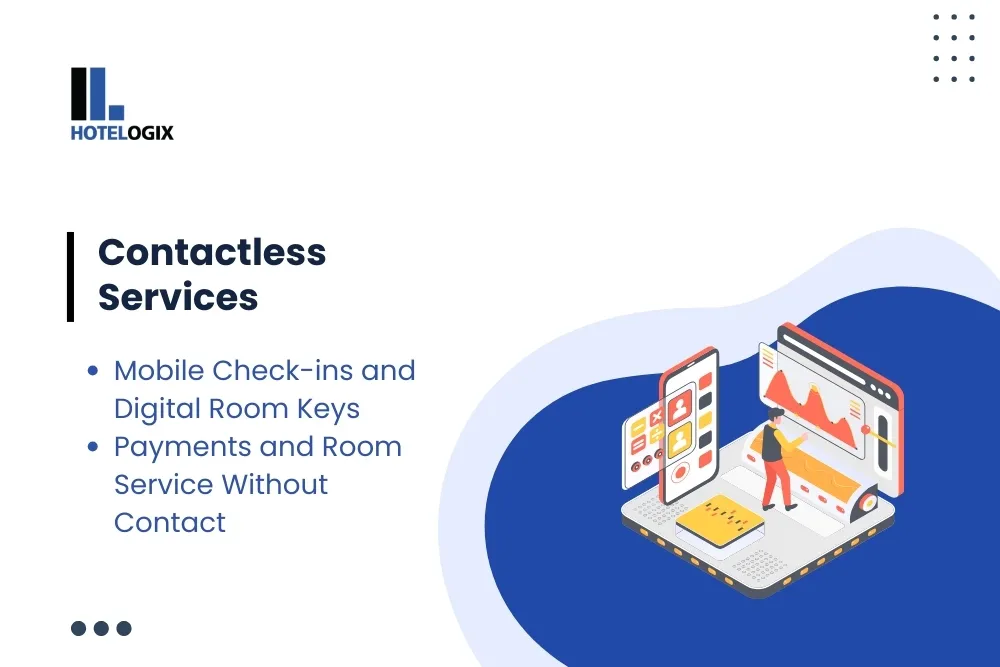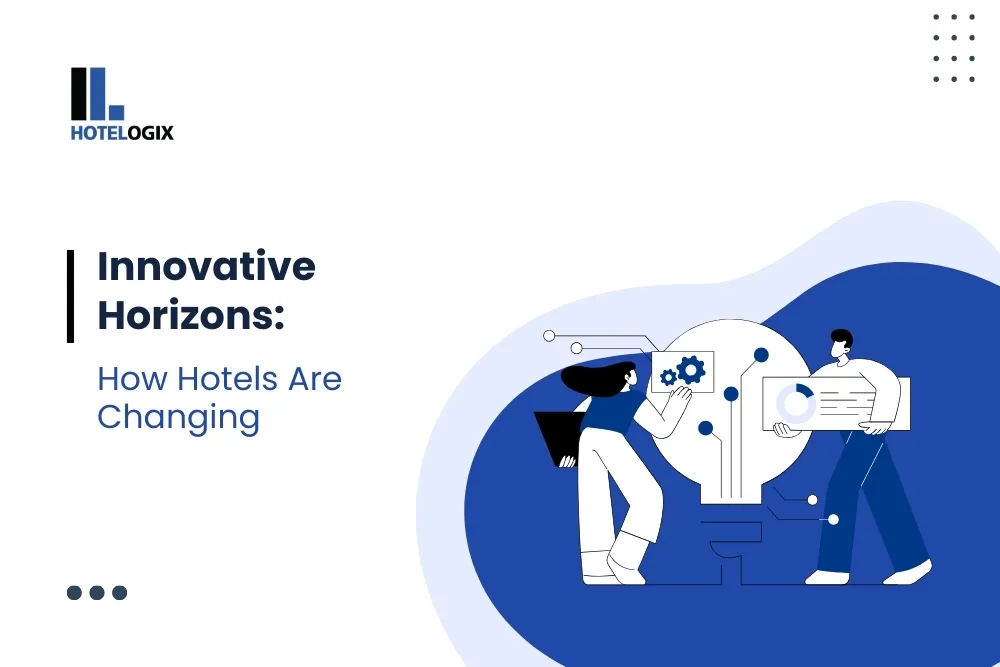Hotels are changing fast. Technology, guest preferences, and the need for sustainability are shaping how they operate. Those that don’t keep up risk losing business.
More travelers expect digital services, eco-friendly practices, and personalized experiences. This article covers how hotels are using technology, saving energy, and improving guest experiences.
AI and Personalization
Hotels use artificial intelligence to improve guest experiences.
Guest Preferences and Suggestions
AI systems help hotel staff provide better customer service by predicting and resolving issues before they arise. If a guest has requested extra pillows in previous stays, the system ensures they are already in the room before check-in.
Hotels use data to offer loyalty rewards and promotions guests are more likely to use, such as discounted spa services or complimentary breakfast.
AI-driven systems adjust room temperatures automatically based on guest comfort levels. If someone prefers a cool room at night and warm settings in the morning, the system remembers and makes adjustments.
AI tracks past bookings, food choices, and requests to customize guest stays. If a guest prefers a specific type of pillow or dietary option, AI ensures that these preferences are noted for future stays.
Chatbots and Virtual Assistants
Some hotels use facial recognition combined with AI to create an entirely touchless check-in experience.
AI handles booking changes and cancellations quickly, making the process smooth. Guests can reschedule stays without waiting in long customer service queues.
Virtual assistants help with check-in, room service, and local recommendations. They can suggest nearby restaurants, make reservations, or even book transportation.
Chatbots answer common guest questions 24/7, reducing the need for staff. Guests can inquire about check-in times, hotel amenities, or local attractions instantly.
Example: Marriott and Hilton use AI assistants like “Connie” to interact with guests and offer recommendations.
Sustainability and Green Practices
Hotels are reducing waste and saving energy.
Reducing Energy and Water Use
AI-powered energy management systems predict peak usage hours and optimize energy consumption accordingly.
Water-saving techniques like rainwater collection and low-flow showers conserve resources. Some hotels recycle water for landscaping or cooling systems.
Solar panels and wind energy help reduce reliance on fossil fuels, leading to long-term cost savings and environmental benefits.
Smart thermostats, LED lighting, and motion sensors cut energy use by up to 30%. These systems automatically turn off lights and reduce air conditioning when rooms are unoccupied.
Eco-Friendly Buildings and Materials
Green roofs and vertical gardens are being added to hotel designs to provide insulation and improve air quality.
AI-powered waste management helps hotels track and reduce trash by analyzing disposal patterns and suggesting improvements.
Some are moving toward plastic-free operations, offering reusable or compostable alternatives for guest amenities like toothbrushes, water bottles, and packaging.
Hotels are using recycled wood, bamboo, and other sustainable materials in their interiors and construction.
Example: Six Senses and 1 Hotels are leading the way in sustainable hotel practices.
Many guests prefer touch-free services.

Mobile Check-ins and Digital Room Keys
Some hotels now allow guests to pre-select rooms based on real-time availability.
Automated check-out means guests can leave without stopping at the front desk, saving time for both travelers and hotel staff.
Digital keys allow guests to access their rooms with their phones. No need for plastic key cards that can be lost or deactivated.
More than 70% of travelers prefer mobile check-in over standing in line. This reduces wait times and makes arrivals smoother.
Payments and Room Service Without Contact
Self-service kiosks allow guests to customize their stays by upgrading rooms or selecting additional services without human assistance.
AI-powered recommendations suggest meals and activities based on past preferences, making the stay more enjoyable.
Guests can order room service or make requests through hotel apps without needing to call the front desk.
Mobile wallets and cardless payments are becoming standard in hotels, reducing cash handling and speeding up transactions.
Example: Hyatt and Accor have implemented mobile check-in and keyless entry to make guest stays easier.
Voice-Controlled Services
Voice technology makes it easier for guests to control their room settings.
Using Smart Speakers for Room Features
Some hotels integrate voice controls with personal accounts, allowing guests to stream content from platforms like Netflix and Spotify.
Hotels offer multilingual support, making it easier for international travelers to interact with hotel services.
Smart speakers provide hotel information and local tips, such as check-out times or the best nearby attractions.
Guests can adjust lighting, temperature, and entertainment with voice commands, eliminating the need to navigate complicated control panels.
Voice-Activated Requests
Voice technology is now being used to improve accessibility for visually impaired guests, enabling them to navigate services more easily.
Hotels reduce labor costs by automating common tasks, freeing up staff for personalized services.
AI learns from past requests to suggest services and activities.
Guests can order room service or request housekeeping without calling the front desk.
Example: Wynn Las Vegas has Amazon Alexa in rooms to handle basic requests.
Prefabricated and Temporary Hotels
Some hotels are using modular construction for faster and flexible accommodation options.
Prefabricated Hotels
- These hotels are built off-site and then transported to their final location. This reduces construction time and lowers costs.
- The modular approach allows hotels to add more rooms as needed without major renovations.
- Prefabricated hotels often use sustainable materials and energy-efficient designs, reducing their environmental impact.
Temporary Hotels for Events
- Pop-up hotels are built for short-term stays during major events, festivals, or seasonal tourism spikes.
- They are usually made from repurposed shipping containers, tents, or modular units that can be quickly assembled and dismantled.
- Temporary hotels provide a unique experience for guests and allow operators to test new locations before committing to a permanent property.
Example: CitizenM and Snoozebox are leading brands in modular and temporary hotel designs.
Health and Wellness Services
More travelers are looking for wellness-focused stays.
Fitness and Relaxation Options
- Hotels are adding in-room workout equipment, yoga mats, and guided fitness programs.
- Wellness-focused spaces such as meditation rooms, rooftop yoga areas, and wellness lounges are becoming more common.
- Sleep-enhancing features, such as blackout curtains, noise reduction systems, and memory foam mattresses, help guests rest better.
Healthier Food Choices
- Hotels are focusing on organic, farm-to-table dining with locally sourced ingredients.
- Many offer personalized meal plans catering to specific dietary needs such as gluten-free, vegan, or keto options.
- AI-powered nutrition assistants help guests select meals that align with their health goals.
Example: Westin Hotels have designed programs that promote better sleep and fitness during stays.
Guest Data and Smart Pricing
Hotels are using guest data to improve services and adjust pricing.

Understanding Guest Preferences
- Hotels analyze booking history, food orders, and previous stay patterns to customize services.
- AI-driven insights help staff offer personalized recommendations, from room types to special promotions.
- Smart systems suggest upgrades, discounts, or exclusive offers based on customer behavior.
Smart Pricing Strategies
- Dynamic pricing adjusts room rates in real time based on demand, local events, and competitor rates.
- AI tools help hotels identify peak booking times and optimize room availability.
- Personalized loyalty programs offer tailored rewards to frequent guests, improving customer retention.
Example: IHG uses AI-powered pricing and personalized loyalty programs to keep guests coming back.
What’s Next for Hotels
- The hotel industry is expected to adopt more automation and self-service options to improve efficiency.
- Sustainability will remain a focus, with more hotels committing to net-zero carbon emissions.
- AI and machine learning will enhance guest experiences by predicting needs before they arise.
- Digital nomads and remote workers will influence hotel design, with more properties offering co-working spaces.
- Augmented reality (AR) and virtual reality (VR) may be used for virtual room previews before booking.
How Hotelogix Helps
Key Features:
– Mobile check-in & digital key access: Guests check in before arrival, skip the front desk, and access rooms via their phones, reducing wait times and cutting plastic key costs.
– Real-time room management: Instantly updates reservations across platforms to prevent overbookings.
– Flexible pricing & organization: Hotels track bookings, adjust rates, and streamline operations in one place.
As digital solutions shape hospitality, Hotelogix helps hotels run smoothly and lets staff focus on guest satisfaction.
Conclusion
Hotels are changing. They are becoming more digital, eco-friendly, and tailored to guest needs. Travelers expect better service, faster check-ins, and customized stays.
The future of hotels will focus on technology, sustainability, and guest comfort. Those that adapt will attract more guests and run more smoothly.

